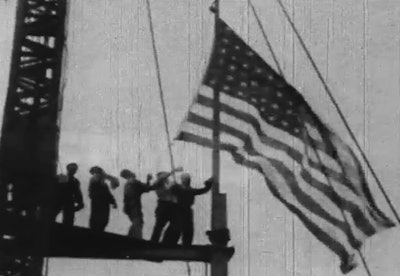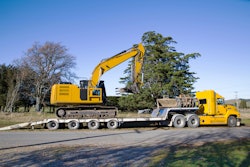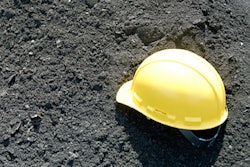 Workers raise the American flag during construction of the Empire State building.
Workers raise the American flag during construction of the Empire State building.It’s Thanksgiving, the day Americans celebrate the preservation of our pilgrim ancestors thanks to the generosity of the Native American Wampanoag tribe. In large part, the Wampanoag showed the Puritans how to properly exist in this new land. Their gift was the foundation of the new American community, much of which ran deep in the history of their tribe.
So, I found it extremely appropriate on this day to reference tight knit Native American communities on how best to solve a serious problem facing the construction industry: poor mental health.
In his new book, “Tribe: On Homecoming and Belonging,” author Sebastian Junger suggests that many of society’s problems can be attributed to the fact that we no longer organize ourselves into small, fiercely loyal tribes as our prehistoric ancestors did for tens of thousands of years.
He’s not the only author to notice. In another recent book, “Bowling Alone,” Robert Putnam documents how almost everybody after WWII belonged to some organization like the Lion’s Clubs and the Jaycees. Today, those service organizations are almost extinct, as is that sense of community…but more importantly, so is the mental wellbeing that comes along with community.
Junger notes that when military veterans come home from war, those who return to civilian occupations, shorn of the tight knit tribe they knew in combat, are a lot more likely to suffer post-traumatic stress disorder than those who return and remain on active duty with their comrades in arms.
“In terms of mental health, we have the second sickest occupational group in the country.”
The reason I think this is relevant to us, is that the mental health of people in the construction industry – statistically speaking – is not good. Two key points from the Centers for Disease Control:
• Compared to people in other occupational categories, people who work in construction have the second-highest rate of alcohol and drug abuse. Fifteen percent of construction workers polled admitted to illegal drug use, 18 percent to heavy drinking. For the general population, those numbers are half that.
• People who work in construction have the second highest rate of suicide of any occupational group: 53 suicides per 100,000 people, vs. 13 per 100,000 for the general population…almost five times higher.
In today’s depersonalized, post-industrial world, it’s every man for himself. Junger writes: “Personal greed almost completely eclipses collective good.” And yet, he points out, the Comanches, the survivors of the siege of Sarajevo, the Marines at Fallujah, and many other groups throughout history have endured terrible experiences, yet suffered little PTSD. Why? According to Junger, it’s because these groups shared a collective identity. They are, or were, tribes: people who knew and experienced the same hardships, shared the same values, and helped each other through it all.
In the 19th Century, the Comanches and other Native American tribes would occasionally capture white women and children in raids. Some were treated harshly, but many were integrated into the daily routines of the tribe. And after only a few months of life in the tribe, most of these women and children refused to go back to “civilized” society. Recaptured by their distraught neighbors and relatives, most fled back to their Indian families and endured great difficulty to rejoin and stay with their new tribe.
Nature, it would seem, has hardwired us all to belong to a tribe. “Humans don’t mind hardship, in fact they thrive on it,” Junger writes. “What they mind is not feeling necessary.”
When I go out for interviews, the best contractors always seem to have their team available. These team members are always die-hard, company loyalists. They’re fun to be with, boisterous, and relentlessly upbeat. Sometimes crew members take me aside to brag on their boss.
That’s a tribe.
Construction can be a great career for many, but in terms of mental health, we have the second sickest occupational group in the country. Why? Shouldn’t construction be one of the most tribal, and hence mentally resilient occupational groups in the country, instead of the opposite?
I’d like to know why you think about this and what we should be doing about it. Email me at: [email protected].











